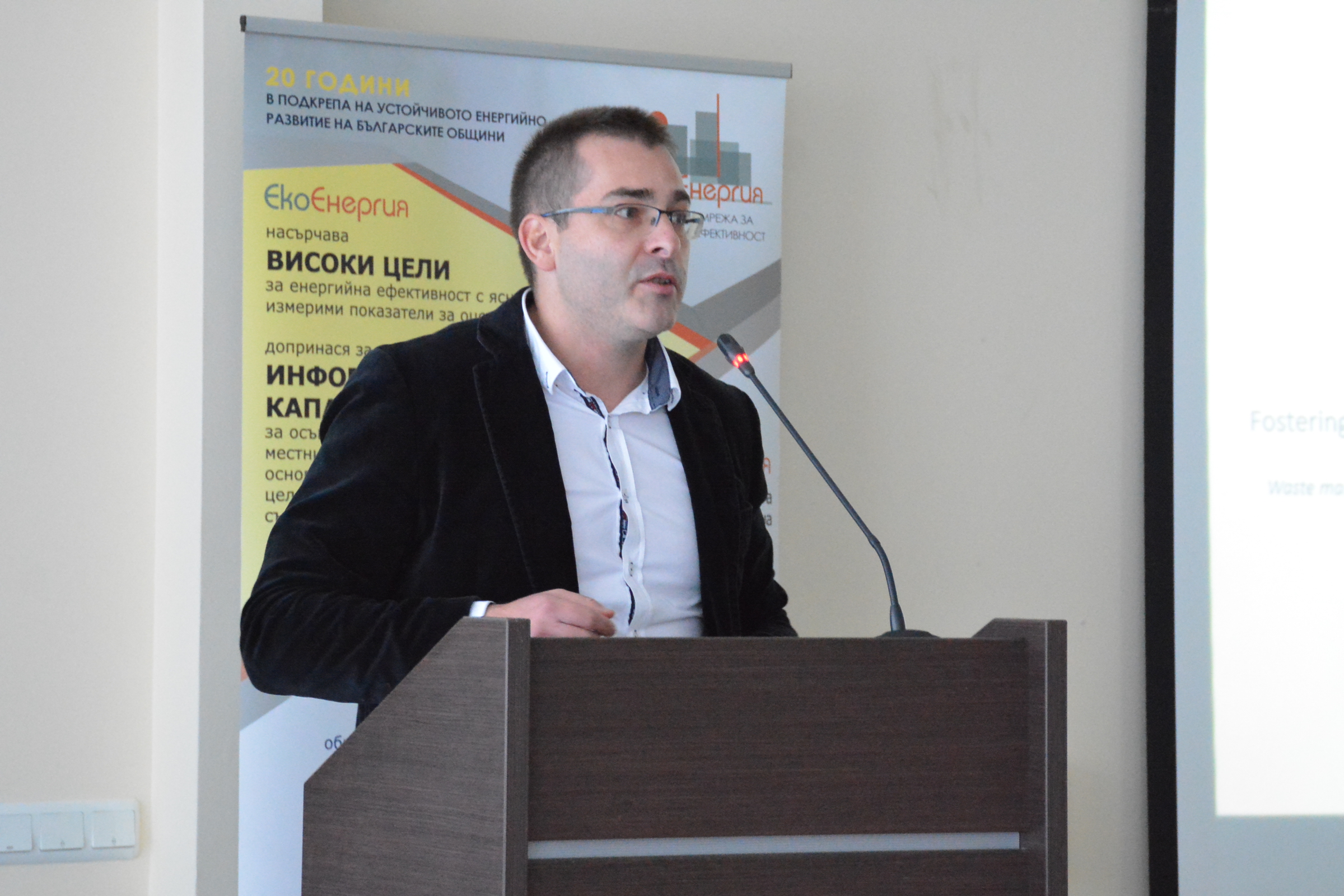EUKI Project-Interview: Municipal Energy Management for Sustainable Climate Financing
by GIZ / EUKI,
For our EUKI brochure, we spoke with Dragomir Tzanev from the Center for Energy Efficiency EnEffect about the EUKI project Municipal Energy Management for Sustainable Climate Finance. The project develops a model for systematic municipal energy management enabling Bulgarian authorities to collect reliable energy-related data and use it for the development of efficient energy and climate action plans. The interview is part of the EUKI brochure published in 2021.

What is your project’s goal, and what exactly are you doing to achieve it?
We want Bulgarian municipalities to become active in the fight against climate change. To this end, we develop energy data collection tools for these municipalities. This is a direct response to a common problem: many municipalities do not ha ve the capacity to collect and manage data on municipal buildings’ ener gy consumption.

Importantly, EnEffect’s experts for energy audits develop these tools, which are then tested in the field by municipal energy experts. Their feedback on the tools and their user-friendliness, as well as suggestions for improvement, then go into further development. It is a participatory process that makes sure to include those who will actually be working with the tools.
“Small municipalities in particular tend to believe that they are too small for large energy projects. That is not true.”
Dragomir Tzanev, Center for Energy Efficiency EnEffect
Your project is entitled Municipal Energy Management for Sustainable Climate Financing. What has energy management to do with financing?
Many municipalities are not able to provide any data on their energy consumption. This lack of data makes it difficult to attract private financing for public projects, as investors do not perceive municipalities as trusted partners. With our project, we aim to bridge this gap in order to convince private investors that it makes sense to invest in municipal projects.
What can other projects in the buildings and municipalities sector learn from you?
Small municipalities especially tend to think that the y are too small for big ener gy projects. But that is not true. When you manage your data well, when you know what is happening in every single building, in e very single piece of infr astructure – you are in a position t o dream big and aim for more ambitious climate goals.
